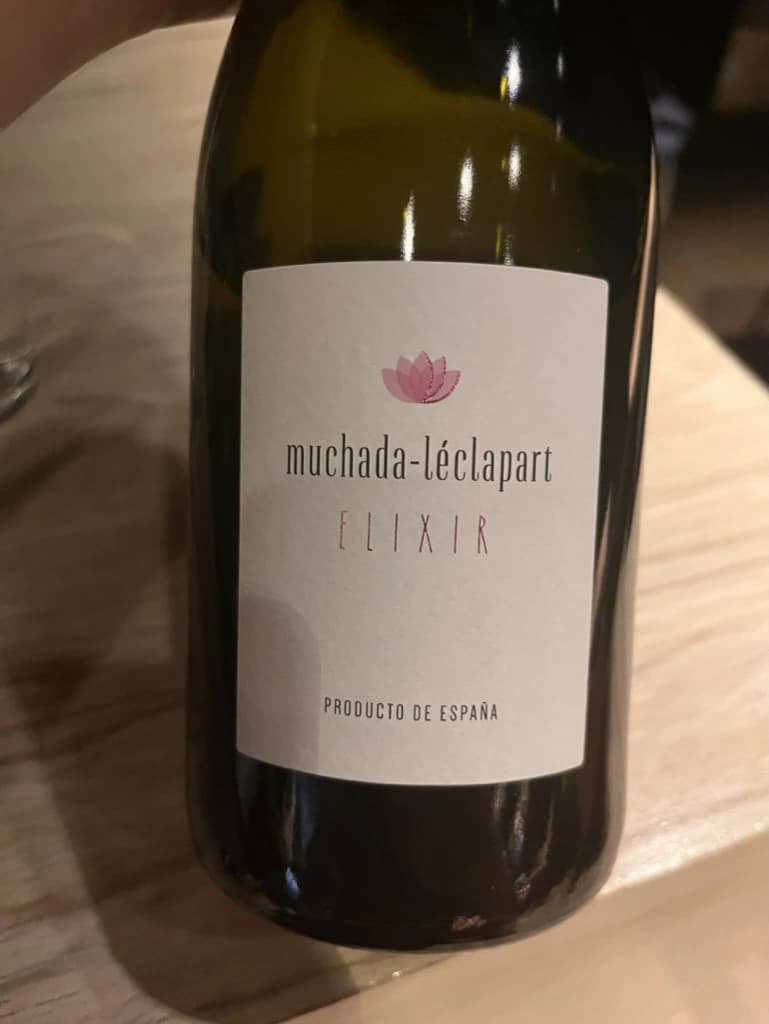Muchada-Léclapart Elixir 2017
- Region
- Spain » Vino de Mesa
- Type
- white still, dry
- Producer
- Vintage
- 2017
- Grapes
- Muscat of Alexandria, Palomino
- Alcohol
- 13.5
- Volume
- 750 mL
- Cellar
- not available

Ratings
It's a fistful of flowers (not to confuse with wine by Momento Mori). Lilies, elderflowers, seawater, citrus, and hints of musk. Well balanced, round, fresh and sophisticated. Pickles and fermented elderflower. VA plays well here.
About Producer
Muchada-Léclapart, a collaborative winemaking project between David Léclapart, a distinguished French Champagne producer, and Alejandro Muchada, a skilled winegrower from Cádiz, represents an innovative venture in the historic wine region of Marco de Jerez, located on the Atlantic coast of Andalusia. Their mission is centred on creating a sublime white wine, distinctively without a flower veil and fortification, focusing on the revered Albariza soil and the Palomino grape, the heart and soul of Jerez.
Their vineyards, encompassing three hectares, are nestled within the prime viticultural lands of Sanlúcar de Barrameda, in the esteemed Pago Miraflores. Benefitting from the cool maritime climate provided by the nearby Atlantic Ocean, the vineyards comprise mainly old vines from ancient mass selections of Palomino fino and Muscat from Chipiona. These plots, including La Platera, Miraflores Alta, and Camino del Puerto, are each unique in their soil composition and vine age, contributing distinct qualities to the grapes.
The winemaking philosophy at Muchada-Léclapart is deeply rooted in biodynamic and organic practices, with an ongoing transition towards official certification. Their approach is one of minimal intervention: eschewing rotavators to protect the living soils, avoiding herbicides and pesticides, and employing surface ploughs for soil management. This dedication extends to their vineyards, where they practice careful pruning and limit yields to between 5000 and 8000 kg per hectare. This lower yield, a mere third of the usual production in the area, is instrumental in achieving a balance of quality and concentration, highlighting the nuanced character and subtle elegance of the well-crafted Palomino grape.
In their cellar, every detail is meticulously managed to ensure the integrity of the wine. The harvest, conducted manually in the early morning to avoid grape heating, is followed by a gentle four-hour pressing using a Champagne press. Fermentation is spontaneous, without the addition of selected yeasts or acids, and only a minimal amount of sulfur is used. The wine matures on its lees for nine months without disturbance and is then bottled without filtering or cold stabilizing to retain all its aromatic complexity and nuances.